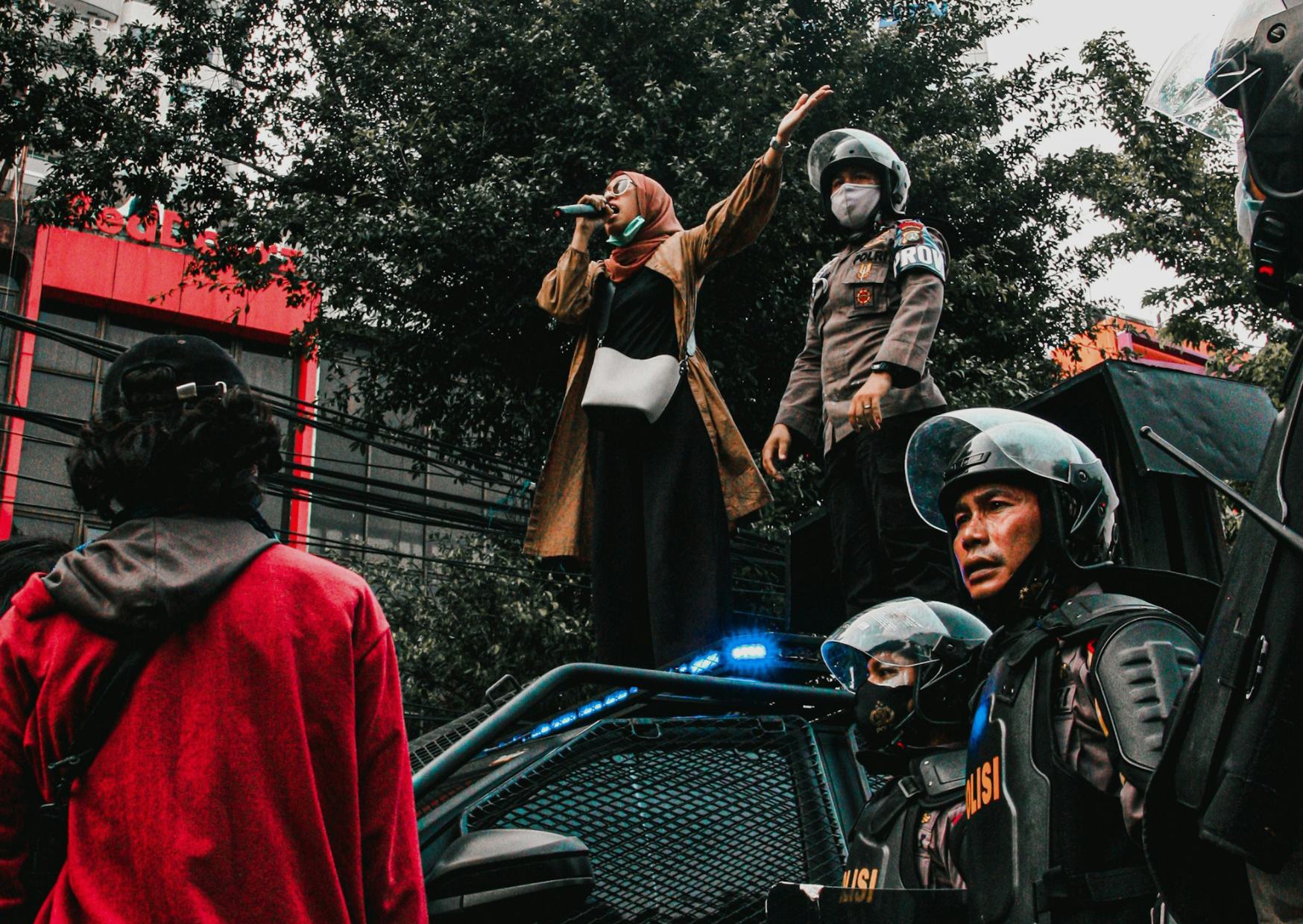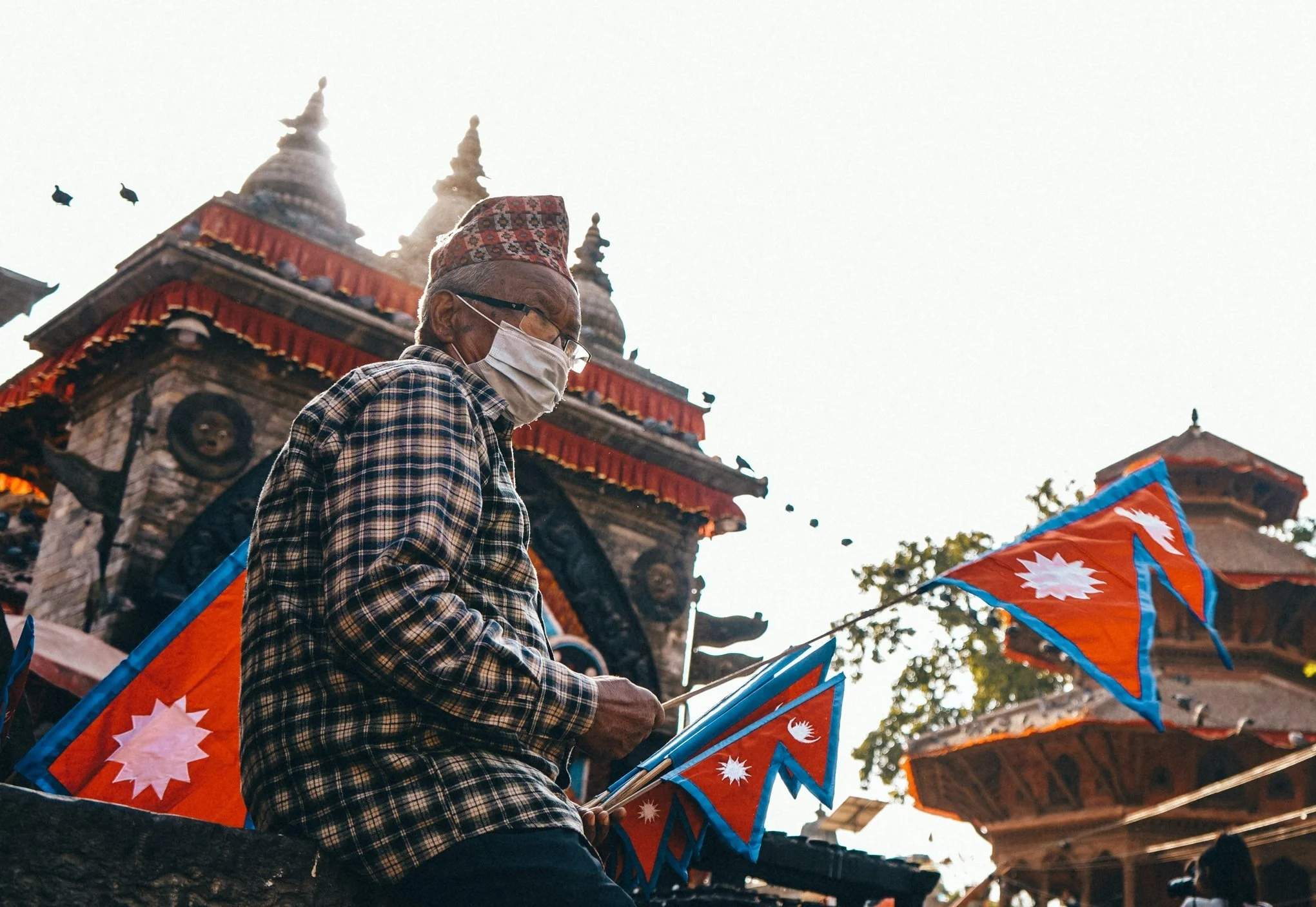EMERGING ISSUES
Written by Faye Simanjuntak
Malaysia’s National AI Roadmap reveals tension between its stated ambitions and the industrial reality taking shape. Although Malaysia has courted notable investments into AI datacentres, there is limited focus on cultivating the upstream capabilities that Malaysia identifies as central to its long-term competitiveness.
Written by Jia Yin Chen and Luc van de Goor
Crucially, countering cognitive warfare is not just about timely dissemination of factual counter-narratives. It must also build each citizen’s defences against disinformation — making them more skeptical of the information they receive and willing to actively verify it or debunk it.
Written by Adhiraaj Anand
Deeper and more sustained transnational exchanges could foster new regional identities and solidarities between national protest movements, as well as increase their resilience and capacity for innovation.
Written by Thu Nguyen Hoang Anh
Based on estimates from the Vietnam National Plastics Action Partnership, if the country’s current systems are not improved, the volume of plastics in its waterways could double by 2030.
Written by James Bowen
The risk posed by Trump’s new strategy will be most pronounced abroad, particularly in the Indo-Pacific region. Home to the world’s most rapidly developing and energy-hungry economies, it also hosts many fossil fuels and/or prospective clean energy producers whose future trajectories remain open to external influence.
Written by Mansoor Sadat
Options for returnees are limited. Faced with a repressive regime in Afghanistan, many risk fleeing once again, potentially taking dangerous, illegal routes to other countries in search of safety.
Written by Sarah Godek
By increasing relations at a slower pace, China’s government makes a safer long-term bet on Afghanistan that forgoes short-run gains to ensure greater security that could protect longer-term benefits in the future.
Written by Dr Narayani Sritharan and Peter Rizkillah
Sinophobia in Indonesia is not merely a by-product of the BRI but a consequence of economic ambition intersecting with security concerns in a rapidly changing geopolitical landscape.
Written by Manish Jung Pulami
The pro-monarchy protests are a reminder that Nepal’s democratic journey is far from over. While the monarchy may be a relic of the past, the underlying grievances that fuelled the latest protests remain relevant today.
Written by Anand P. Krishnan
Clearly, unemployment captures the anxieties and disillusionment of youth on both sides of the Himalayan Gap. By the same count, there are no easy solutions for either government to manage, if not completely resolve, this crisis.
Written by Francesco Giovanni Lizzi
Taking stock of the international context surrounding the summit, it is apparent that the BRI has been confronted by a number of challenges. President Xi's keynote speech coincided with mounting scepticism, especially from Europe and North America, concerning the prospective viability of the initiative.
Written by Dr Franziska Plümmer
The risks of brain drain and demographic change are looming over the heads of Beijing’s policymakers and business leaders, who are also increasingly incentivising Chinese students to come back from abroad.
Written by Dr Amira Jadoon and Iqraa Bukhari
A shift towards utilising female fighters for pragmatic reasons would not be without precedent, as evidenced in case studies of Boko Haram or Islamic State affiliates in Southeast Asia. Pakistan, in particular, presents a largely “untapped female operative market”.
Written by Bhumika Sevkani
The development of these seaports is particularly crucial for the smaller landlocked countries of South Asia such as Nepal and Bhutan.
Written by Muhammad Faizal Bin Abdul Rahman
Even as it coordinates with other Indo-Pacific strategies and the G20, the priority for the Quad should be to make the geopolitical landscape more amenable to engagement with ASEAN.
Written by Drake Long
The ground laid in 2022 will ensure that state-backed exploration of seabed mining will continue, and 2023 may see the first steps taken towards commercial-scale exploitation of the seabed.
Written by Harry Thursby-Pelham
With India constructing roads and border villages leading up to the LAC in response to China’s construction, it looks like tensions on the border will continue in the foreseeable future.
In recent years discussions among scholars, analysts, and policymakers have focused on the nature, transformation, and/or ostensible crisis of the rules-based international order. We invite three experts to offer differing perspectives on these ongoing debates in the context of the Indo-Pacific in this Forum for 9DASHLINE.
Written by Dr Lucas Knotter
While it is tempting to view the relatively small island of Bougainville as merely drifting into the geopolitical whirlwinds of more powerful actors in the region, we should not forget that Bougainville also maintains considerable leverage in relation to these actors.
Written by Greg Fealy, Sally White, and Burhanuddin Muhtadi
If we place the 2021 survey results beside data from other credible surveys over the past decade, it is possible to conclude that the high point of polarisation occurred during and between the 2014 and 2019 elections, but has since declined.
Written by Teddy Winn
The challenge for the incoming government will be to continue upholding PNG’s foreign policy practice of ‘friends to all, enemies to none’ while not destabilising existing bilateral arrangements the country has with its regional partners, including its closest and long-time partner, Australia.
Written by Casey Babb
If he is going to be compelled to behave differently, or if regime change is the end goal, policymakers, practitioners, and cyber experts need to cut off North Korea’s digital “bank robbers”.
Written by Nava Nuraniyah
The attack on an Ahmadiyah mosque in Sintang, West Kalimantan on 3 September is but one indication that the existing anti-radicalism campaign has merely served as a political weapon to target government enemies, rather than defending minorities.
Written by Jennifer Jackett
Australia has a critical stake in how the US navigates strategic and economic trade-offs of technology cooperation and competition with China.























